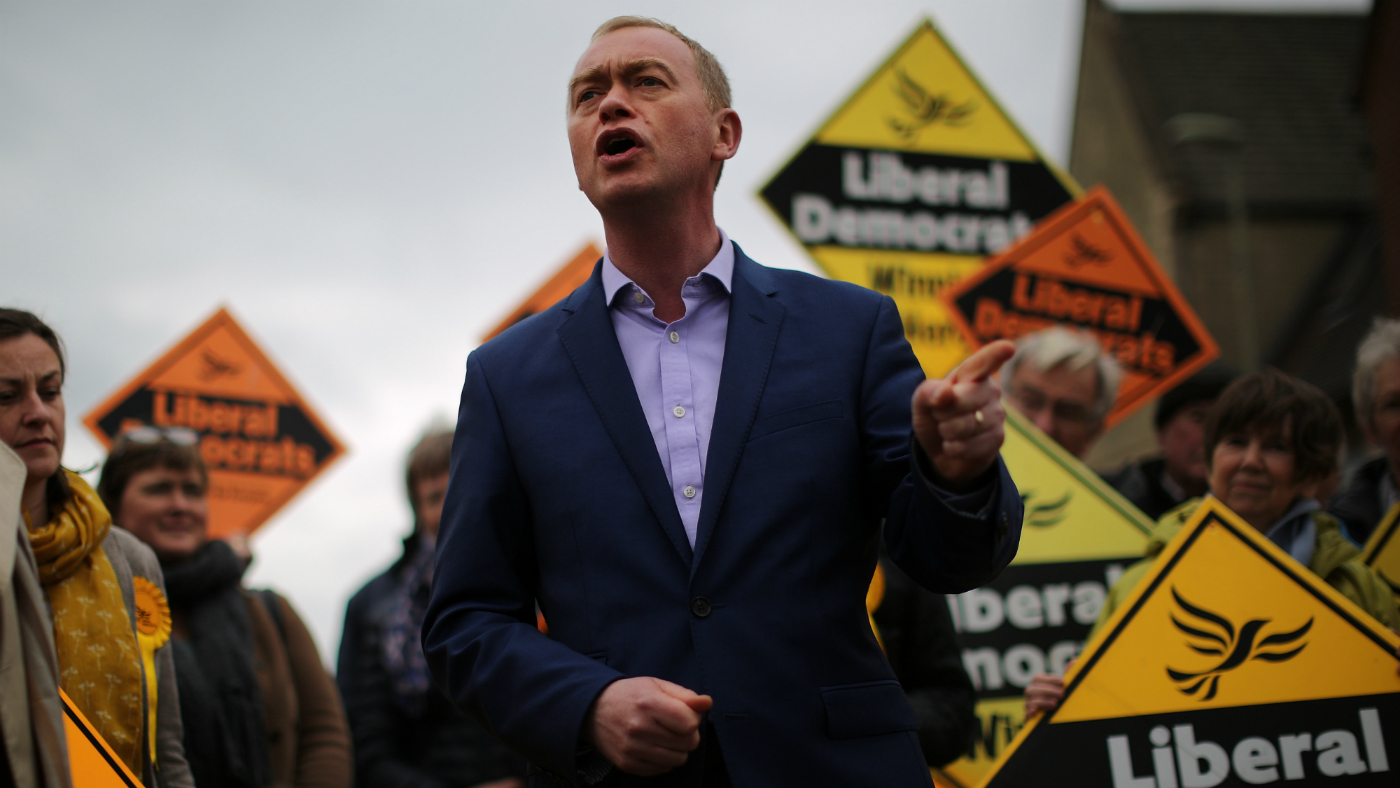Labour and Lib Dems pledge to increase corporation tax
Conservatives are likely to stick with their pledge to reduce business tax

A free daily email with the biggest news stories of the day – and the best features from TheWeek.com
You are now subscribed
Your newsletter sign-up was successful
A clear divide has emerged between the main rival campaigns in the general election campaign, with Labour and Liberal Democrats on one side and the Tories the other when it comes to corporation tax.
Both the left-of-centre parties have pledged to increase the tax paid by businesses, saying they will use the money to fund spending on education in particular, following an outcry over effective real terms funding cuts for schools worth close to £3bn.
Labour's £8.4bn plan would be paid for by increasing corporation tax from its current rate of 19 per cent to 26 per cent by 2020-2021, taking it back to within two per cent of its rate when the party was last in power.
The Week
Escape your echo chamber. Get the facts behind the news, plus analysis from multiple perspectives.

Sign up for The Week's Free Newsletters
From our morning news briefing to a weekly Good News Newsletter, get the best of The Week delivered directly to your inbox.
From our morning news briefing to a weekly Good News Newsletter, get the best of The Week delivered directly to your inbox.
Smaller firms with annual income below £300,000 would see their rate increased more slowly to 21 per cent.
The Lib Dems would raise money for their £7bn plan by increasing the rate to a more competitive 20 per cent, which is still below the global average. It says it would also reverse the married tax allowance and save money by remaining in the EU single market.
The Tories are planning to cut corporation tax to 17 per cent in an effort to bring businesses to the UK, especially after Brexit.
Corporation tax is an easy target, but set the rate too high and odd things can happen, says Kamal Ahmed on the BBC. Despite being cut nine per cent cut since 2010, the amount the levy brings in has risen from £43bn to close to £50bn.
A free daily email with the biggest news stories of the day – and the best features from TheWeek.com
Part of this reflects the economic recovery, meaning firms are now paying on higher profits. However, advocates of lower taxes say businesses have also moved to the UK as a result.
Ahmed adds that although the headline rate declined, other taxes on businesses increased, while allowances for the likes of machinery reduced. Consequently, at Labour's rate, businesses might well be facing an overall higher tax burden than in 2010.
The Institute for Fiscal Studies said Labour's plan would raise £19bn in the short term but "substantially less" longer term because companies would invest less in the UK, says The Guardian.
-
 Tourangelle-style pork with prunes recipe
Tourangelle-style pork with prunes recipeThe Week Recommends This traditional, rustic dish is a French classic
-
 The Epstein files: glimpses of a deeply disturbing world
The Epstein files: glimpses of a deeply disturbing worldIn the Spotlight Trove of released documents paint a picture of depravity and privilege in which men hold the cards, and women are powerless or peripheral
-
 Jeff Bezos: cutting the legs off The Washington Post
Jeff Bezos: cutting the legs off The Washington PostIn the Spotlight A stalwart of American journalism is a shadow of itself after swingeing cuts by its billionaire owner
-
 Labour shortages: the ‘most urgent problem’ facing the UK economy right now
Labour shortages: the ‘most urgent problem’ facing the UK economy right nowSpeed Read Britain is currently in the grip of an ‘employment crisis’
-
 Will the energy war hurt Europe more than Russia?
Will the energy war hurt Europe more than Russia?Speed Read European Commission proposes a total ban on Russian oil
-
 Will Elon Musk manage to take over Twitter?
Will Elon Musk manage to take over Twitter?Speed Read The world’s richest man has launched a hostile takeover bid worth $43bn
-
 Shoppers urged not to buy into dodgy Black Friday deals
Shoppers urged not to buy into dodgy Black Friday dealsSpeed Read Consumer watchdog says better prices can be had on most of the so-called bargain offers
-
 Ryanair: readying for departure from London
Ryanair: readying for departure from LondonSpeed Read Plans to delist Ryanair from the London Stock Exchange could spell ‘another blow’ to the ‘dwindling’ London market
-
 Out of fashion: Asos ‘curse’ has struck again
Out of fashion: Asos ‘curse’ has struck againSpeed Read Share price tumbles following the departure of CEO Nick Beighton
-
 Universal Music’s blockbuster listing: don’t stop me now…
Universal Music’s blockbuster listing: don’t stop me now…Speed Read Investors are betting heavily that the ‘boom in music streaming’, which has transformed Universal’s fortunes, ‘still has a long way to go’
-
 EasyJet/Wizz: battle for air supremacy
EasyJet/Wizz: battle for air supremacySpeed Read ‘Wizz’s cheeky takeover bid will have come as a blow to the corporate ego’